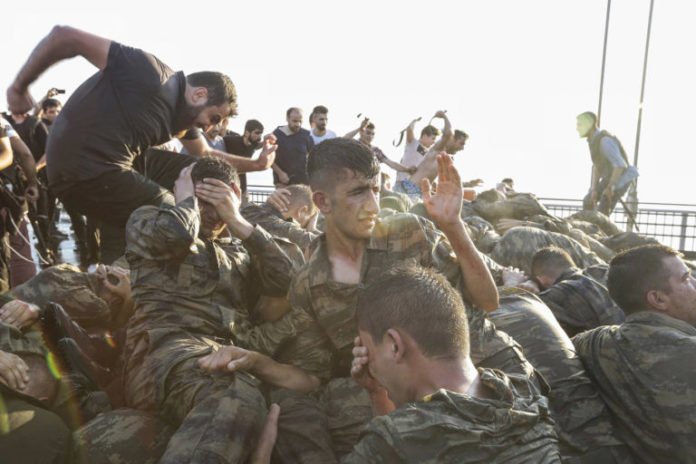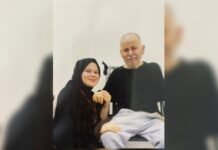Hamza Yıldız, a young private in the Turkish military convicted of involvement in a failed coup in July 2016 and handed down nine life sentences, spoke with the Bold Medya news website about his ordeal for the past four years in a Turkish prison and how his life has been taken away from him.
Yıldız had started his compulsory military service only 42 days before the coup attempt on July 15, 2016. Together with his fellow soldiers he was ordered to go to the Bosporus Bridge, which connects the European and Asian sides of İstanbul, without knowing why. After the attempt was suppressed Yıldız survived a lynching attempt on the bridge by a mob.
Turkey experienced a controversial military coup attempt on the night of July 15, 2016 which, according to many, was a false flag aimed at entrenching Erdoğan’s authoritarian rule by rooting out dissidents and eliminating powerful actors such as the military in his desire for absolute power.
The abortive putsch killed 251 people and wounded more than a thousand others. The next morning, after announcing that the coup had been put down, the Turkish government immediately started a huge purge of military officers, judges, police officers, teachers and other government officials, which ultimately led to the summary dismissal of more than 150,000 public servants from their jobs.
The Turkish government accuses the Gülen movement, a religious group inspired by US-based Turkish cleric Fethullah Gülen, of masterminding the abortive putsch and labels it a terrorist organization. The movement strongly denies involvement in the coup attempt or any terrorist activity. Following the allegations, Gülen called on the Turkish government to allow for an international investigation.
Most of the soldiers were made to believe that they were taking part in an operation against an anticipated terror attack or participating in a counterterrorism drill. Turkey was hit by a number of terrorist attacks that year, particularly by the Islamic State in Iraq and the Levant (ISIL). Only a couple of weeks before the abortive putsch an ISIL terrorist attack targeted Istanbul’s largest airport, killing 45 and wounding 230.
In a letter to human rights defender and pro-Kurdish Peoples’ Democratic Party (HDP) deputy Ömer Faruk Gergerlioğlu, Yıldız said: “My prison sentence will exceed my lifetime. They have left us to rot in prison. Does it make sense for a private who only served for 42 days to be imprisoned for life? I want my life back, and I want the four years I lost back. I beg for justice!”
Since the failed coup, 20,077 members of the Turkish Armed Forces (TSK) have been summarily dismissed from their jobs. Some 4,000 armed forces personnel are still under investigation. A number of privates and military cadets, some as young as 17, were also tried in the coup cases and given life sentences.
Yıldız is held in an overcrowded prison ward that was designed for seven people but now hosts 27 to 42 and is anxious about contracting COVID-19. The pandemic has also led to severe restrictions on visitations. “I have not seen my family for over a year, and I am at the verge of losing my mind,” Yıldız says.
The Turkish parliament passed a release bill in mid-April to mitigate the spread of COVID-19 in the country’s overcrowded prisons. But the law, which provided the possibility of early parole or house arrest to inmates, explicitly excluded tens of thousands of political prisoners such as politicians, journalists, lawyers, academics, and human rights defenders convicted under the country’s controversial and broadly interpreted counterterrorism laws. The government has turned a deaf ear to calls from international organizations, NGOs and rights groups to include political prisoners within the scope of the release law.
The Council of Europe’s European Committee for the Prevention of Torture (CPT) has recommended that governments provide alternatives to deprivation of liberty to ease overcrowding and offer “screening for COVID-19 and pathways to intensive care” for the most vulnerable.

















